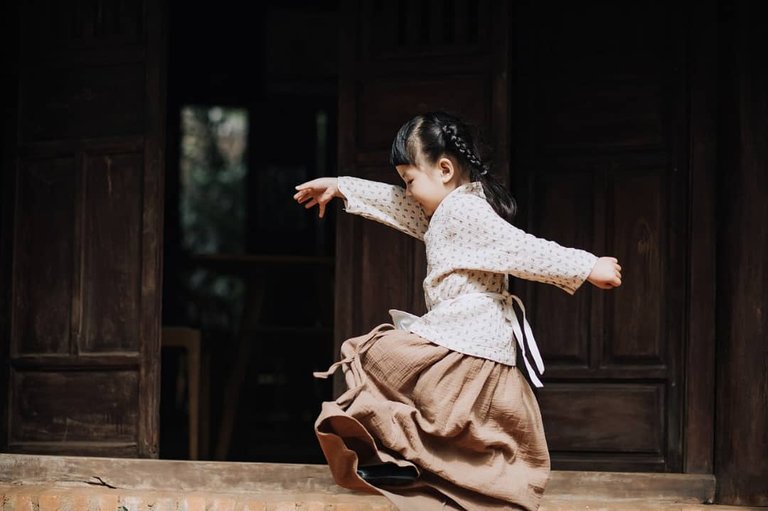There lived a young girl named Ireti in a quiet Nigerian town. She was already 8 years old, but has already had more pain than the majority of children in her age group. Ireti was born with a rare bone disorder that made her bones extremely fragile. Even a small fall could result in a painful fracture, leaving her bedridden for weeks.

Her mother, Mama Ireti, was a single parent who worked tirelessly as a tailor to provide for them. Despite her struggles, she adored her daughter and did everything to protect her. Ireti, you are strong inside, even if on the outside your bones are weak," she would sit beside Ireti every night, softly stroking her hair, and continue. Never forget that.”
Every day, Ireti would be waiting by the window, watching other children play and run, laugh, and play in the yard. She wanted to be there, to experience feeling the wind in her hair as she ran or to leap and clap in glee. But her mother had warned her to stay safe. “You can watch them from here, Mama Ireti would say, pointing to the window.
But watching wasn’t the same as playing. As she sat there alone, Ireti often felt like she didn’t belong. She enjoyed hearing the children laugh, yet it made her heart soar. She wondered if they even noticed her or if she was invisible to the world outside her window.
One sunny afternoon, as she sat in her usual spot, a group of children playing tag noticed her. One of them, a kind-hearted boy named Dayo, who was about ten years old, stopped and waved. “Hello, Ireti!” he called out. She paused, hesitant to be sure that he was even speaking to her.
Dayo walked closer to the window, smiling warmly. “Why don’t you come and play with us?” he asked.
Ireti’s heart raced. She wanted to say yes, but fear held her back. “I can’t, she said softly, her eyes dropping to the floor.
“Why not?” Dayo asked, genuinely curious.
“I’m not like you,” she said, her voice trembling. “If I fall, I could break my bones.”
Dayo cocked his head, a picture of curiosity and comprehension in his face. Imagine we play a game, in which you do not need to move or leap. We can sit and play ludo or draw pictures in the sand," etc.
Ireti’s eyes lit up with excitement. “Really? You’d do that for me?”
“Of course,” Dayo replied. “Friends take care of each other.”
From that day on, everything changed. Dayo and the rest of the children started going to Ireti's house frequently. They would meet under the branches of the giant mango tree in her backyard, telling stories, drawing characters in the sand, or playing ludo, strategy board games, and so on.
For the first time in her life, Ireti felt like she belonged. She laughed with the playmates and talked and dreamt together. They didn't ask her to behave like she was different or delicate and treated her like a friend.
The other day, while they were playing, Dayo stared in admiration at Ireti. “You know, Ireti, being fragile doesn’t mean you’re weak. You’re very brave because you don’t give up, no matter what.
Those words stayed with Ireti, replaying in her mind like a favorite song. She began to see herself in a new light. Instead of focusing on what she couldn’t do, she started thinking about what she could do.
That night, she inquired to her mother, "Mama can you teach me how to sew?
Mama Ireti’s face lit up with pride. “Of course, my child,” she said.
At first, Ireti struggled with the needle and thread, but she was determined to learn. Soon, she started making tiny dresses for her dolls. With time and practice, she even began helping her mother with simple sewing tasks for her customers.
With the passing of the year's months, Ireti became more and more sure of herself. She became known in the town for her creativity and her kind heart. Fellow neighbours would frequently drop off pieces of cloth, in the hopes of seeing what marvelous patterns she had in store.
People admired her strength, not because of her physical abilities, but because of her courage to live fully despite her challenges. She had channeled her suffering into meaning, thereby moving her neighborhood.
One day, as Ireti sat by the window, she no longer felt sad watching the children play. She smiled, remembering how far she had come. She didn’t feel left out anymore. She realized she was treasured and admired whole heartedly, just for who she was. Her life might have been fragile, but her spirit was unbreakable.
Ireti’s story spread across the town, and she became a symbol of resilience and hope. Those children who used to play with her under the mango tree, all grown up now, never forgot the little girl who showed them that strength wasn't about running fast or jumping high, but something different. It was about the courage to keep going, no matter what life threw at you.
The truest strength lies in the interior, even the most frail of existence can radiate brilliantly with love, courage and belief.
image source



